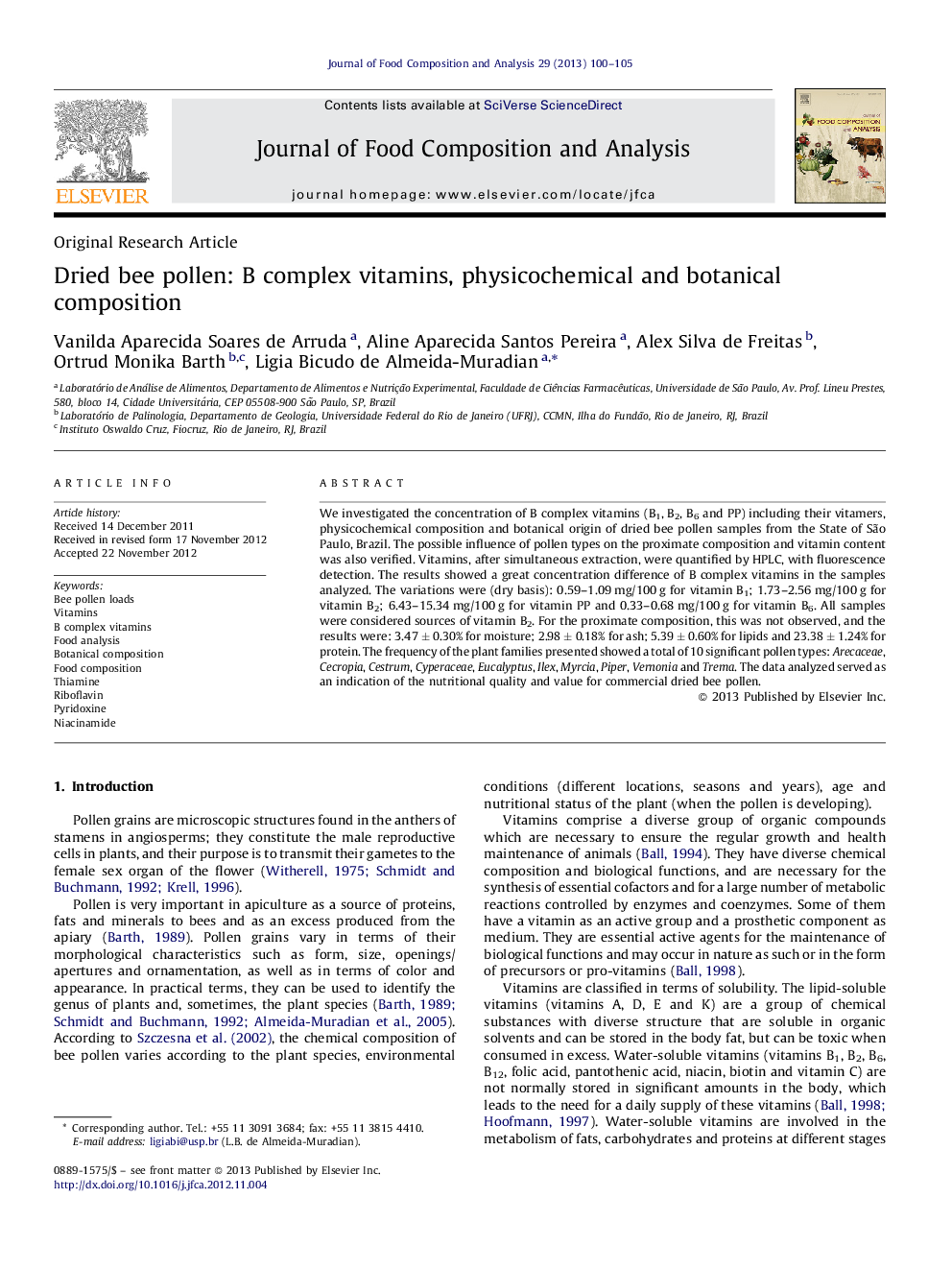| Article ID | Journal | Published Year | Pages | File Type |
|---|---|---|---|---|
| 1218369 | Journal of Food Composition and Analysis | 2013 | 6 Pages |
We investigated the concentration of B complex vitamins (B1, B2, B6 and PP) including their vitamers, physicochemical composition and botanical origin of dried bee pollen samples from the State of São Paulo, Brazil. The possible influence of pollen types on the proximate composition and vitamin content was also verified. Vitamins, after simultaneous extraction, were quantified by HPLC, with fluorescence detection. The results showed a great concentration difference of B complex vitamins in the samples analyzed. The variations were (dry basis): 0.59–1.09 mg/100 g for vitamin B1; 1.73–2.56 mg/100 g for vitamin B2; 6.43–15.34 mg/100 g for vitamin PP and 0.33–0.68 mg/100 g for vitamin B6. All samples were considered sources of vitamin B2. For the proximate composition, this was not observed, and the results were: 3.47 ± 0.30% for moisture; 2.98 ± 0.18% for ash; 5.39 ± 0.60% for lipids and 23.38 ± 1.24% for protein. The frequency of the plant families presented showed a total of 10 significant pollen types: Arecaceae, Cecropia, Cestrum, Cyperaceae, Eucalyptus, Ilex, Myrcia, Piper, Vernonia and Trema. The data analyzed served as an indication of the nutritional quality and value for commercial dried bee pollen.
► Presence of vitamins B1, B2, B6 and PP (vitamers) in dried bee pollen samples. ► Food with high protein value. ► Quality of the bee pollen.
